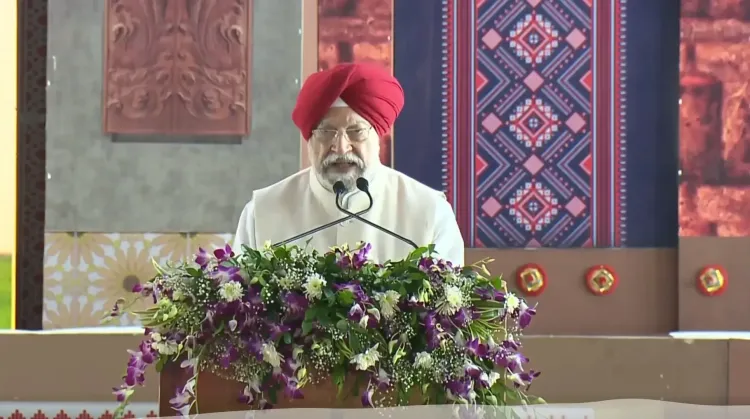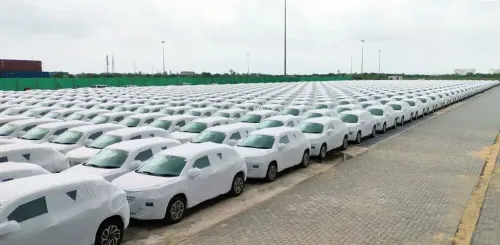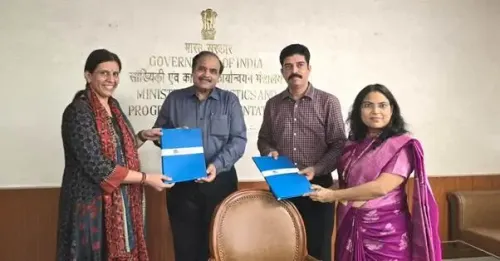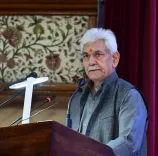How Will the New Polypropylene Plant Transform Assam's Economy?

Synopsis
Key Takeaways
- New polypropylene plant inaugurated in Assam.
- Capacity of 360 KTPA will enhance local employment.
- Investment of Rs 7,231 crore marks significant economic growth.
- Project aims to strengthen India's petrochemical sector.
- Focus on self-reliance in energy needs.
Guwahati, Sep 14 (NationPress) Minister of Petroleum and Natural Gas Hardeep Singh Puri emphasized on Sunday that the polypropylene plant boasting a capacity of 360 KTPA, inaugurated by Prime Minister Narendra Modi at the Numaligarh refinery in Assam, will forge a vital link to the nation's petrochemical sector. This initiative is set to create job opportunities and significantly enhance the socio-economic landscape of the region.
This polypropylene facility, constructed with an investment of Rs 7,231 crore, will lay a robust foundation for the advancement of India's petrochemical industry, as stated by the minister.
Petrochemicals are essential in manufacturing a wide range of products, such as glucose bottles, medical syringes, plastic pipes, and automobile dashboards. This plant is poised to transform the future of Northeast India, steering India towards a promising trajectory, he added.
On the same day, the Prime Minister announced that projects totaling around Rs 18,000 crore have been earmarked for Assam. He mentioned that earlier, he was in Darrang, where he laid foundation stones for connectivity and healthcare projects. He further noted that in the current setting, he inaugurated and laid foundations for projects related to energy security, which will further bolster Assam’s development.
Highlighting Assam's role in enhancing India's energy potential, the Prime Minister remarked that petroleum products originating from Assam play a pivotal part in the nation's progress.
He stressed that these initiatives will catalyze industrial growth in Assam, expedite the state's development, and generate new prospects for farmers and youth. He congratulated the residents of the state for these advancements.
The Prime Minister pointed out that India has historically relied on foreign sources for energy, importing substantial amounts of crude oil and gas. This reliance has led the nation to pay vast sums of money annually to other countries, benefiting their economies. He asserted that this situation needed to change, reinforcing that India is now on a path toward self-sufficiency in meeting its energy demands.









